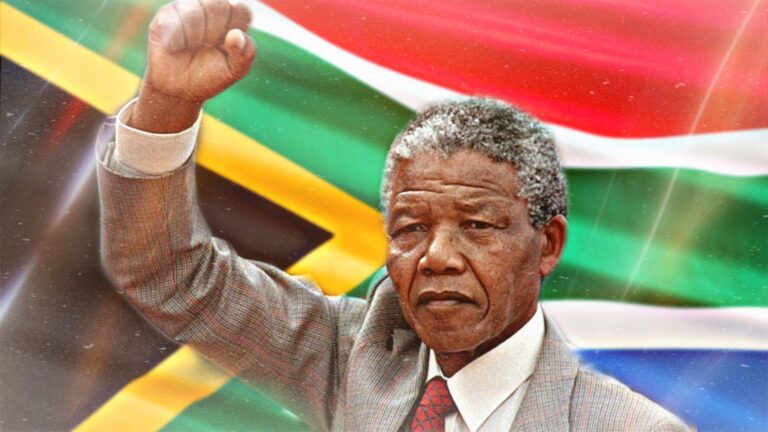Nelson Mandela, affectionately known as Madiba, is one of the most revered figures in African history. His courage, resilience, and unwavering commitment to justice and equality transformed South Africa and inspired the world. As a leader, freedom fighter, and the first Black president of South Africa, Mandela’s legacy remains a powerful force in shaping the African continent.
Early Life and the Making of a Revolutionary
Born on July 18, 1918, in the small village of Mvezo, South Africa, Nelson Rolihlahla Mandela came from the Thembu royal family. His traditional upbringing instilled in him a sense of responsibility and leadership. However, witnessing the injustices of apartheid, a brutal system of racial segregation, ignited his passion for activism.
Mandela studied law at Fort Hare University and the University of Witwatersrand, where he became involved in student activism. His legal training would later help him defend many who suffered under apartheid laws.
The Fight Against Apartheid
In 1944, Mandela joined the African National Congress (ANC) and co-founded the ANC Youth League. He believed that South Africa could only be free if people of all races were treated equally. The 1950s and 1960s saw him leading nonviolent protests, strikes, and boycotts against the government.
However, after the Sharpeville Massacre in 1960, where police killed peaceful Black protesters, Mandela and the ANC took a more militant approach. He co-founded Umkhonto we Sizwe (Spear of the Nation), a movement that used sabotage against government infrastructure to fight apartheid.
His resistance led to his arrest in 1962. In 1964, he was sentenced to life in prison during the famous Rivonia Trial, where he gave his historic speech:
“I have walked that long road to freedom. I have tried not to falter; I have made missteps along the way. But I have discovered the secret that after climbing a great hill, one only finds that there are many more hills to climb.”
Mandela would spend 27 years in prison, mostly on Robben Island, becoming a global symbol of resistance.
Freedom and Presidency
As international pressure against apartheid grew, the South African government, led by President F.W. de Klerk, was forced to negotiate. On February 11, 1990, Mandela was finally released. His walk to freedom was a defining moment in history.
Instead of seeking revenge, Mandela led peaceful negotiations to dismantle apartheid. In 1993, he and de Klerk were awarded the Nobel Peace Prize for their efforts. The following year, on April 27, 1994, South Africa held its first multiracial elections, and Mandela became the country’s first Black president.
His presidency (1994–1999) was marked by national reconciliation, social reforms, and efforts to heal the wounds of apartheid. His government focused on:
✔ Truth and Reconciliation Commission – To address past injustices
✔ Education and economic reforms – To uplift the Black population
✔ A new democratic constitution – Guaranteeing rights for all South Africans
Mandela’s Global Influence and Legacy
Even after stepping down as president, Mandela continued to fight for human rights, peace, and development across Africa. He played a role in fighting HIV/AIDS, poverty, and education inequality.
His influence is celebrated globally, with Nelson Mandela International Day (July 18), urging people to spend 67 minutes doing good—one minute for each year of his public service.
Lessons from Nelson Mandela
🌍 Forgiveness is powerful: Despite suffering injustice, Mandela chose peace over revenge.
🌍 Education is key: He believed education was the most powerful weapon to change the world.
🌍 Resilience leads to victory: He never gave up, despite spending nearly three decades in prison.
🌍 Leadership is about service: Mandela put his people before himself, setting an example for African leaders.
Final Thoughts
Nelson Mandela’s story is one of hope, courage, and transformation. He proved that one person can change the world through determination and a commitment to justice. His legacy lives on, reminding us that Africa’s future is in our hands.
👉 What does Nelson Mandela’s legacy mean to you? Let’s continue his dream for a united and prosperous Africa!
Would you like any changes to fit Smeej Africa’s brand voice? 😊

